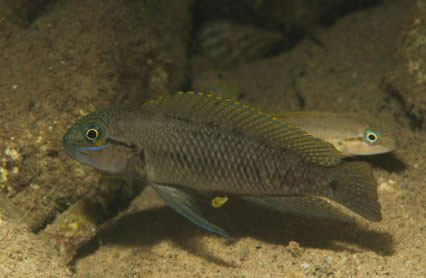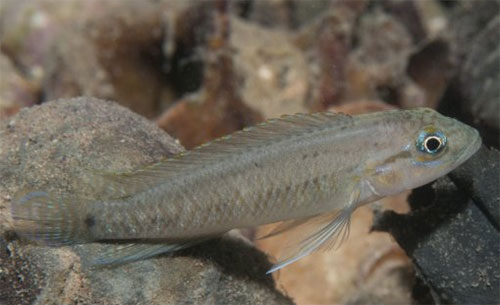Competition between large and small versions of the same cichlid in Lake Tanganyika could lead to them becoming two separate species in the future.
Telmatochromis temporalis consists of two ecomorphs (local varieties of a species whose appearance is determined by its ecological environment), that strongly differ in body size and the habitat in which they live.
There is a big version of the fish that lives on the rocky shoreline, and a small version which is roughly about half the size, that lives and breeds in accumulations of empty snail shells found on sand.

According to a study by Dr Martin Genner from Bristol's School of Biological Sciences and colleagues, the bigger fish outcompete the smaller ones, driving them away from the preferred rocky habitats and into the neighbouring sand, where they find shelter for themselves and their eggs in the snail shells.
"In effect, big and small fish use different habitats; and because of this habitat segregation, fish usually mate with individuals of similar size. There is virtually no genetic exchange between the large- and small-bodied ectomorphs," Dr Genner said.
Speciation occurs when genetic differences between groups of individuals accumulate over time. In the case of Telmatochromis there are no obvious obstacles to the movement and interaction of individuals. But, the non-random mating between large- and small-bodied fish sets the stage for the evolutionary play.
Dr Genner said: "The relevance of our work is that it provides experimental evidence that competition for space drives differential mating in cichlid fish and, in time, leads to the formation of new species. Nature has its ways – from body size differences to the formation of new species. And clearly, size does matters for Telmatochromis and for fish diversity."
Competition for a limited resource, such as food, space or shelter, was one of Darwin’s mechanisms for the formation of new species. The researchers are unable to say as yet whether these cichlids will definitely become two separate species, but the evidence points towards this happening in the future.



